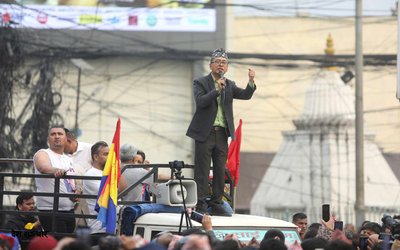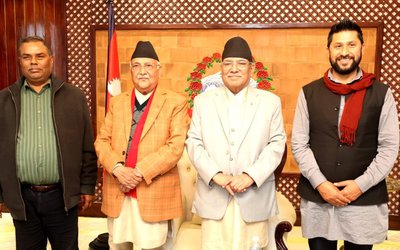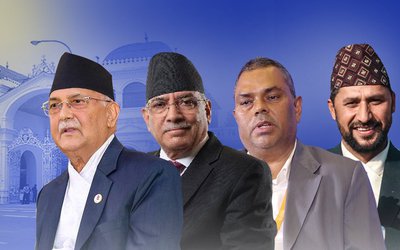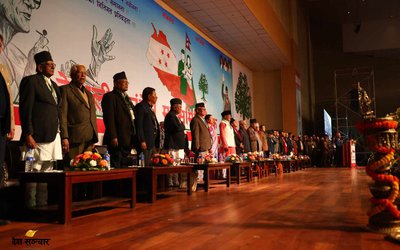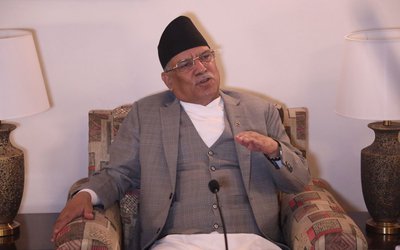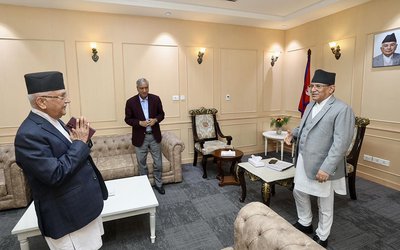The rule by a majority obtained through a fair election process is the main feature of democracy. In its conduct, the majority needs to stick to a set of principles, at the political and the party levels. In governance, it needs to adhere to the principle of accountability. The absence of accountability in politics and governance is an anti-thesis to democracy. Minority voice or dissent within the party is another parameter for the measurement of democracy. The practice and principles of democracy elsewhere entail a guarantee to certain freedoms and rights, namely, freedom of expression, right to own property, and right to uphold human dignity, among others. In the days to come, the right to a dignified livelihood, that
essentially means the right against poverty and hunger, is likely to be included among the fundamental rights. An independent judiciary free from any executive interference, and a free and fair electoral system, unaffected by money and muscle power,are essential ingredients of a truly democratic practice that we set out for during our democratic struggles.
Where are we in this journey that started in April 2006? The beginning was full of euphoria, but commitment and character were lacking. Political vendetta and quest for revenge were the weapons
that the neo rulers under the leadership of G P Koirala, of course with the support from the Communist Party of Nepal-Unified Marxist Leninist (CPN-UML) and the Maoists, and with full backing from the
international community, used against political opponents. The rulers turned the country into a fief (birta)—as noted scholar Kedar Bhakta Mathema says—instead of a democratic state. The parliament, which was dissolved in May 2002, was revived by invoking the doctrine of political necessity four years later. It then turned into a crowd of ‘yes men (and women)’ with no institutional pride. Two leaders- Nepali Congress’s G P Koirala and Maoist Chief Prachanda—enjoyed a position much above parliament deciding things in their room jointly and imposing the decisions upon the parliament. Dictators always use the so-called representative bodies as a ‘rubber stamp’ and the collective willingness of that institution to succumb to individuals made democracy and democratic institutions weaker.
They were given the status above accountability. And gradually, they roped in some other parties—UML, Madheshi groups—and as per the composition of parliament (and later Constituent Assembly) and the
government, and also began a system of distributing key positionsamong their loyalists and supporters. They did that all in the name of pursuing a progressive politics and abolishing feudalism. The civil society, the media and the international backers were either meek in their response, or they started playing second fiddle in a way that was both against their expected roles as well as Nepal’s sovereignty.
And worse, they never said democracy was facing its worst trial, much worse than it was during the Royal takeover. Yes, King Gyanenndra misinterpreted the constitution and took over. But the new dispensation totally attacked the principle of constitutionalism and democracy.
Opposition was crushed as the first two leaders, then four parties Nepali Congress, UML, Maoists and the Madheshi groups –became the self-proclaimed champion of ‘politics of consensus’ and that consensus became more powerful than the interim constitution or undermined the principle of constitutionalism.
Democracy never got practiced in actual sense. The leaders and rulers of the past four years have refused to accept the system of accountability. Economy has almost collapsed. The country prominently figures in the list of fragile states. And yet no accountability has been fixed for this colossal failure. Yet, some leaders are making dangerous statements that the country’s sovereignty is less important than the peace process and constitution making.
The parliament, which is also a Constituent Assembly of 601 members, cannot survive indefinitely at the cost of taxpayer’s money. It has neither debated the people’s problems nor their general insecurity, price rise and other myriads of issues concerning them. It has lost faith and hope that the people reposed in it earlier. There are no signs that it will deliver a complete and democratic constitution. Nor is it likely to settle major issues or debates on federalism and its bases. The king was held accountable for what he did, and perhaps, what he did not do. But will these leaders and the House be held accountable for their collective failure?
It will be interesting to watch if even a single member of any party resigns on the call of conscience questioning the moral authority of the House and his or her own to continue being there? Absence of
accountability and a politics sans morality will pave the way either for authoritarianism or anarchy.
- TANAHU HYDROPOWER PROEJCT: A Significant Achievement
- Apr 15, 2024
- AMBASSADOR HANAN GODAR: Sharing Pain With A Nepali Family
- Mar 30, 2024
- VISIT OF KfW AND EIB TO NEPAL : Mission Matters
- Mar 25, 2024
- NEPAL BRITAIN SOCIETY: Pratima Pande's Leadership
- Mar 24, 2024
- NEPAL ARMY DAY: Time To Recall Glory
- Mar 15, 2024

